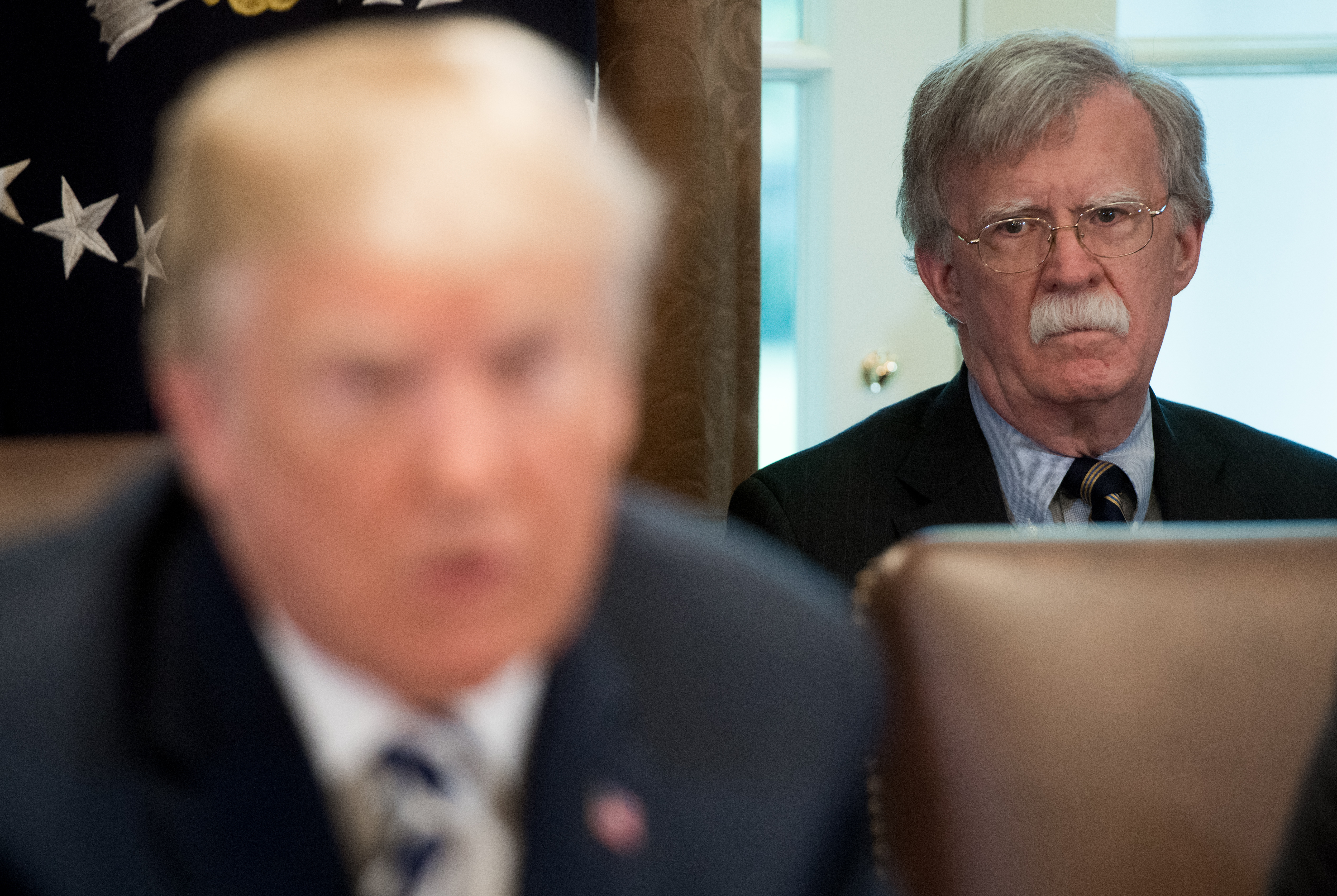John Bolton: the hawkish Trump aide riling up NKorea
Photo: () | ©AFP
Washington (AFP) – John Bolton — Donald Trump’s national security advisor known for his bold mustache and even bolder statements — now finds himself in North Korea’s sights, with Pyongyang upset over his suggestion that it follow Libya’s lead on denuclearization.
This is the biggest hiccup in the tentative rapprochement that began on March 8, when the president stunned the world by saying he was ready to meet North Korean leader Kim Jong Un.
On Wednesday, Kim’s regime expressed its dismay and threatened to scrap the much-anticipated summit between the two mercurial leaders set for June 12 in Singapore.
The North — careful not to directly call Trump onto the carpet — instead went for the jugular on Bolton, a conservative firebrand who in the past has often advocated for US military action on the international stage.
“We shed light on the quality of Bolton already in the past, and we do not hide our feeling of repugnance towards him,” first vice foreign minister Kim Kye Gwan said in a statement carried by North Korean state media.
While the impact of Pyongyang’s change in tone remains to be seen — simple brinksmanship or the beginning of a true diplomatic crisis — it underlines the differences in approach within Trump’s inner circle.
Bolton, who was named to his post less than two months ago, is not new to North Korea. A fixture in George W. Bush’s administration, he was once referred to as “human scum and a bloodsucker” by North Korea’s state media in the early 2000s.
Before joining the administration, the former US ambassador to the United Nations defended the option of a pre-emptive strike against Pyongyang’s nuclear arsenal as “perfectly legitimate.”
– ‘Libya model’ or ‘Trump model’?-
But it was his recent comments to Fox News, in which he cited the “Libya model from 2003, 2004” as a blueprint for the denuclearization promised by North Korea, that have angered Pyongyang.
In late 2003, then Libyan leader Moamer Kadhafi agreed to the elimination of his country’s nuclear program and chemical weapons arsenal to gain sanctions relief.
The reference was seen in Pyongyang as unfortunate at best: after giving up his atomic program, Kadhafi was killed in 2011 in an uprising backed by NATO bombing.
Bolton’s comment was a “sinister move to impose on our dignified state the destiny of Libya or Iraq,” said the North Korean minister, Kim.
“I cannot suppress indignation at such moves of the US, and harbor doubt about the US sincerity.”
Without explicitly disavowing the national security advisor, the White House clearly tried to put distance between the Oval Office and Bolton’s comments.
“I’m not aware that that’s a model that we’re using,” Trump’s press secretary Sarah Sanders told reporters, when asked about whether the “Libya model” was in play.
“This is the President Trump model. He’s going to run this the way he sees fit.”
– Hardliner –
On other hot-button issues, in public and behind private doors, Bolton has made it clear he will follow his signature hard line in his new position.
“Bolton told us, ‘We want the sanctions to hurt, there will be no exemptions, but go and discuss with the Treasury,'” said one European diplomat about ongoing negotiations between the European Union and the US on Iran.
The fast-moving developments on North Korea have fueled fears of a clash between Bolton, for whom regime change is the best solution, and Secretary of State Mike Pompeo, who has already met the North Korean leader twice in Pyongyang.
Saying such a clash is possible, Thomas Wright of the Brookings Institution think tank in Washington says that Trump could eventually part ways with Bolton.
“Trump clearly likes Bolton’s tough talk, but below the surface there are real differences. Trump is genuinely worried that Bolton is too keen to start wars, instead of just threatening them,” Wright wrote.
Disclaimer: This story has not been edited by Siliconeer and is published from a syndicated feed. Siliconeer does not assume any liability for the above story. Validity of the above story is for 7 Days from original date of publishing. Content copyright AFP.


